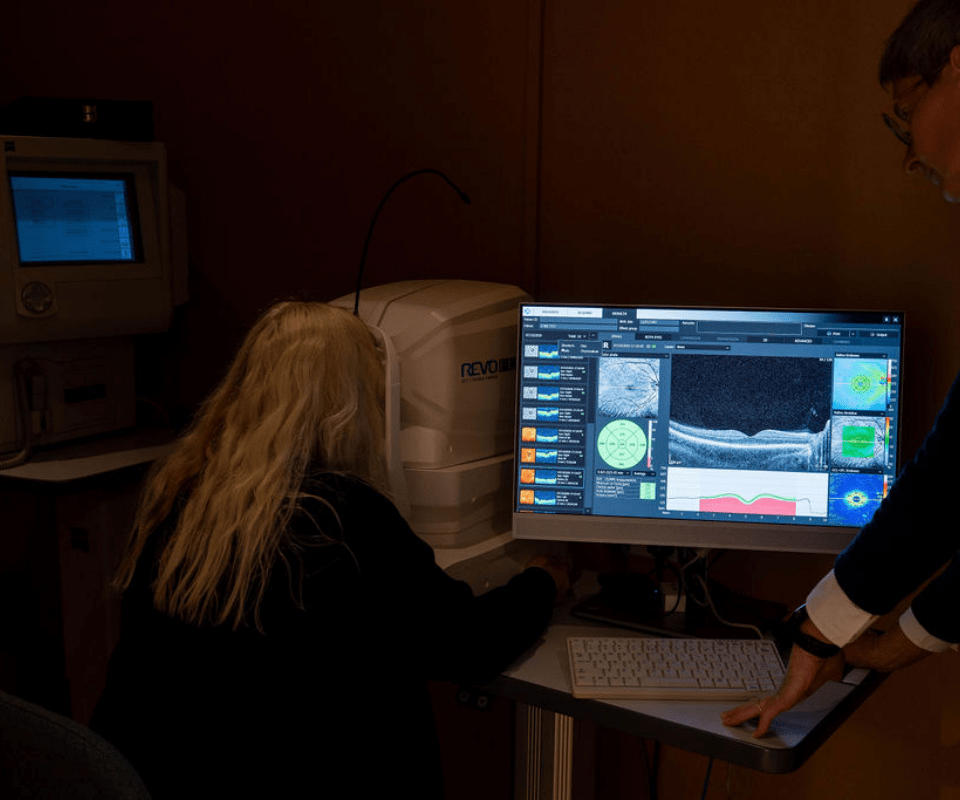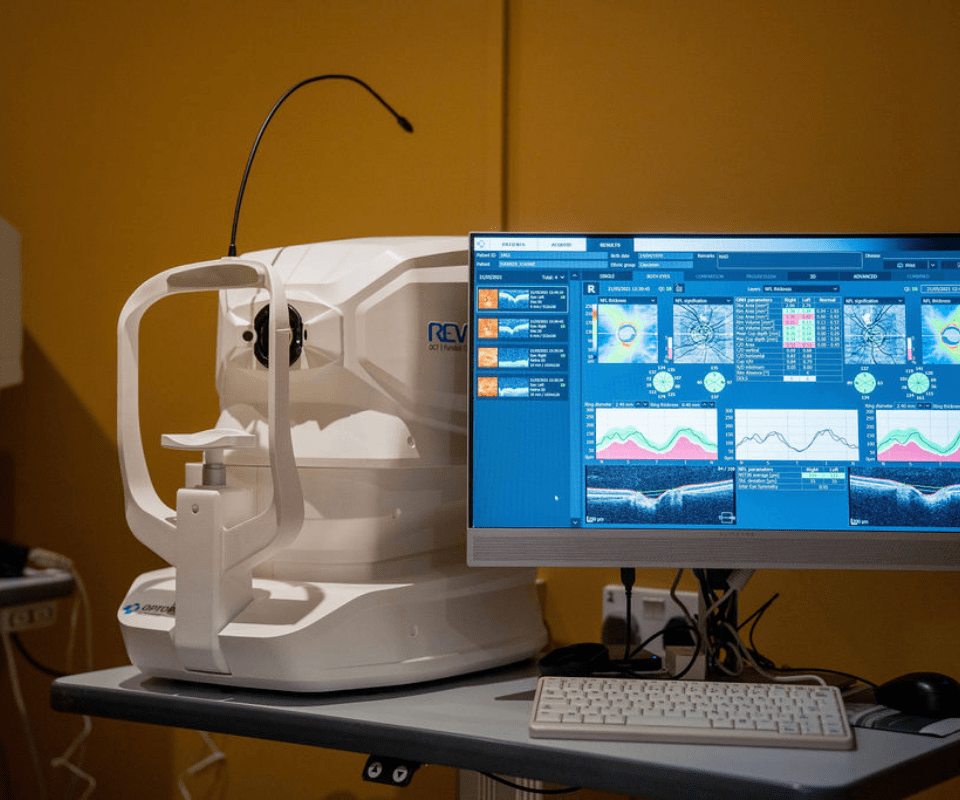
EYE TESTS
Why is it important to get regular eye tests?
The eye test process
What to expect when going for your eye test at Beswetherick Opticians
01
Appointment
02
Eye test
Please bring along your latest spectacles and a list of any medication you may be taking when you attend your appointment. Our optometrist will discuss any concerns you have regarding your vision and perform your eye test. Understanding your eye care needs is very important to us.
03
Prescription
After your eye test, our friendly team will review your results and discuss the next steps.
This is a collaborative experience. This is where the team gets together to explore the best possible solution for you – this is where the magic begins!

did you know
An OCT scan can detect multiple eye conditions?

Clinical services
Acute Community Eyecare Service (ACES)
If you are worried about a sudden change to your vision, are experiencing flashes or floaters, red, painful or itchy eyes then we can help. We deal with all kinds of eye problems and emergencies on a daily basis. You may also have foreign body injuries, chemical burns, eye infections or a corneal ulcer. We can see you FREE OF CHARGE if you are registered with a Somerset GP. The service is funded by the NHS under the ACES scheme.
Please call us on 01460 63535 if you have any concerns.
We also offer private emergency appointments for those not eligible under the ACES scheme.

dry eyes
Dry eyes appointment
Are you experiencing discomfort or blurred vision due to dry eyes? Secure your dry eyes appointment at Beswetherick opticians. The booking process is straightforward – visit our website or ring 01460 63535. Our skilled opticians will assess your symptoms, conduct thorough examinations, and discuss a tailored treatment plan. From specialized eye drops to lifestyle adjustments, we’ll guide you through effective solutions. Don’t let dry eyes disrupt your life. Schedule now and experience the relief of healthier, more comfortable eyes. Your vision wellness is our priority.
frequently asked questions
Made specifically for children, MiYOSMART lenses correct myopia shortsightedness and slow its progression. These lenses utilise a patented D.I.M.S. technology that helps to decrease the progression of myopia by altering the way light enters the eye. MiYOSMART lenses are available in different prescriptions and are worn daily, like traditional eyeglasses. They are a great option for parents who want to help slow their child’s myopia progression and improve their long-term eye health.
Macular degeneration is a chronic eye disease that affects the macula, a small area near the centre of the retina that is responsible for our central vision. It is most common in people over the age of 50 and can lead to vision loss over time. There are two types of macular degeneration, dry and wet, and both can cause blurred or distorted vision. Dry macular degeneration is the most common type and progresses slowly, while wet macular degeneration is less common but more severe and can cause sudden vision loss. The condition is often detected during a comprehensive eye test and there are various treatment options available to help slow the progression of the disease and maintain vision. If you are experiencing changes in your vision or have a family history of macular degeneration, it is important to have regular eye tests to detect the condition early.
Glaucoma is a group of eye diseases that can cause damage to the optic nerve, which transmit visual information from the eye to the brain. It is a leading cause of irreversible blindness worldwide and often goes unnoticed in its early stages because it usually does not cause any noticeable symptoms until vision loss has already occurred. Glaucoma is a progressive disease, and without treatment, it can eventually lead to blindness. Therefore, it is important to watch out for glaucoma and get regular eye tests to detect the disease in its early stages. Those who are at a higher risk of developing glaucoma include people over the age of 60, people with a family history of the disease, those who have had an eye injury or eye surgery, and people with certain medical conditions such as diabetes.

